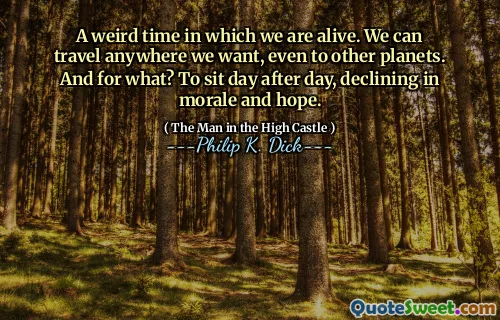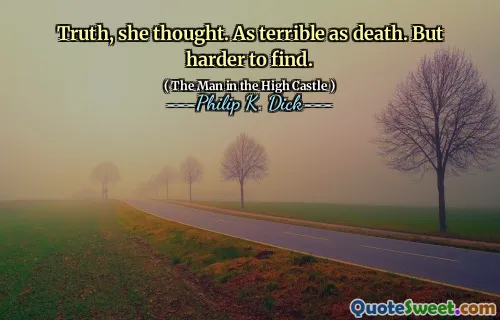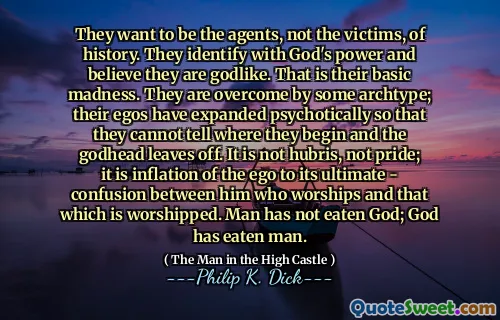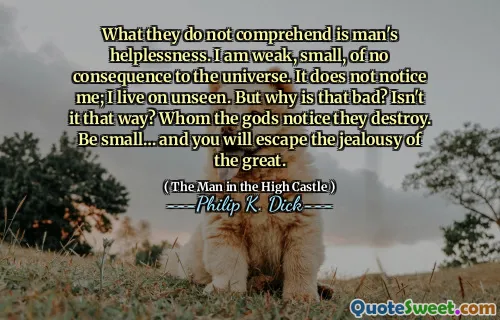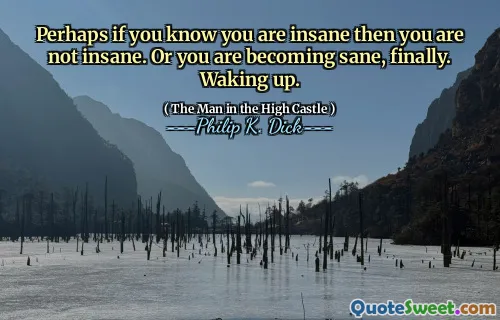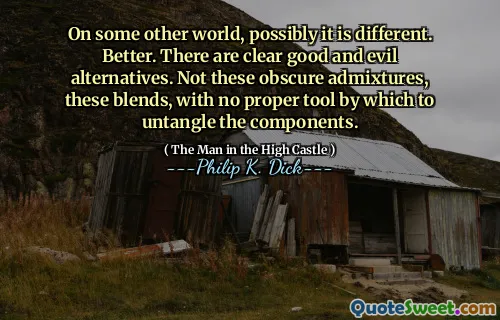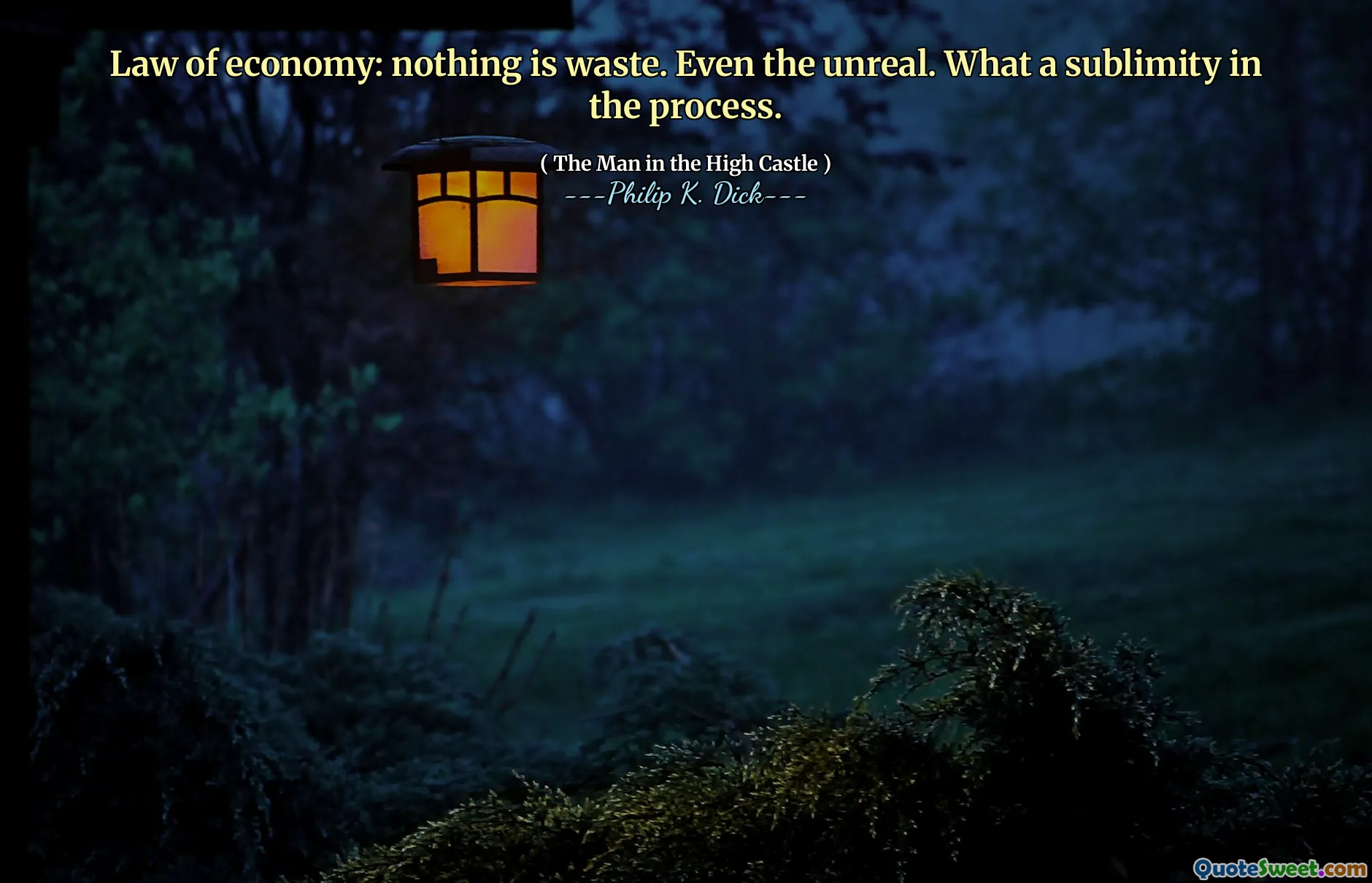
Law of economy: nothing is waste. Even the unreal. What a sublimity in the process.
The concept of the "Law of economy" suggests that nothing is truly wasted, even if it appears unreal or insignificant. This idea emphasizes the intrinsic value of every experience and element, regardless of its immediate utility. In Philip K. Dick's "The Man in the High Castle," this notion invites readers to reflect on how everything contributes to the broader tapestry of existence.
This perspective prompts us to reconsider our understanding of waste and value. The sublimity referred to in the quote indicates that even the most seemingly trivial aspects of life and reality hold importance in shaping our experiences and understanding of the world. The novel explores these themes within an alternate history, highlighting how perceptions of worth and significance can vary dramatically.
